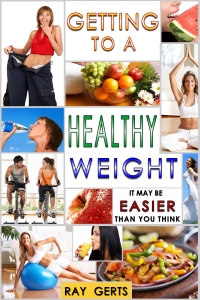I understand the concept: Five small meals a day takes the edge off your appetite, evens out blood sugar levels, and keeps your energy steady. But I confess: Who has time to eat this way?
Although my fitness trainer encourages me to eat healthy food every few hours, my meals usually look like this: coffee, a bit more coffee, lunch at 3 p.m., dinner at 9 p.m. I start over again the next morning.
Although my fitness trainer encourages me to eat healthy food every few hours, my meals usually look like this: coffee, a bit more coffee, lunch at 3 p.m., dinner at 9 p.m. I start over again the next morning.
When I decided to change this habit, and the routine of eating the way you eat is just a habit that you can change, I found that doing these five things helped:
- Plan ahead. Five meals a day equals breakfast, lunch, dinner, and two snacks. To do this right, you need to plan what you’ll eat every day for each “meal.” And you need to schedule eating every 2 to 3 hours.The trick is to even out the calories so you eat 300 calories each time your eat. All five meals should be the same size. Larger meals will elevate your blood sugars or glucose level and cause food cravings later. So whether it's a meal or a snack it needs to be the same size, the same amount of calories.
- Stock up. Face it: You’re going to grab whatever food is closest. So stock up on veggies, fruit, healthy carbs like whole grains, lean proteins, and low-fat dairy products such as milk, yogurt, and cottage cheese.
- Go for taste. Choose snack foods that will sustain you and taste good. Remember, healthy food can be satisfying. Mixed nuts are my favorite but for a morning snack fruit or greek yogurt is better.
- Whip up a smoothie. Blend fruit, milk, yogurt, powdered protein and a little honey for a sweet taste. It's a filling snack packed with vitamins, fiber, protein, and calcium. It might sound crazy but I put peanut butter in and I don't use fruit, I use vegetables like spinach leaves and if I don't want milk, I'll put water. There's dozens of ways to make a protein shake, you can find recipes on the internet.
- Combine carbs and protein to stay full longer. Try whole wheat toast with peanut butter or a hard-boiled egg; whole-grain pasta with olive oil and cheese; or oatmeal with fruit, milk, and honey. Or make yourself a big pot of soup that includes pasta, beans and chicken to heat up for lunches or snacks.
If your someone who starts the day very early you might want to do 6 meals a day. Make that first meal the first hour your up and finish eating 3 hours before bed. If you have to push the meals closer together, remember to cut the calories a little like 250 each instead of 300.
If you really want to lose the extra flab you can get help, I write 4 blogs and I’ve written two E-books. Read some of my other blog posts.
Gettingtoahealthyweight.wordpress.com
idropped40pounds.wordpress.com
howbaddoyouwanttoloseweight.blogspot.com
E-books are the easiest and cheapest way to learn about any subject without groping through hundreds of websites looking for the material you want.
My first e-book is “HowBadDoYouWantToLoseWeight” and it sells for $2.99 on most online bookstores like Amazon.com, BN.com, iBook, Kobo.com, Scribd.com, and Gardner books in the U.K.
My second e-book is available in the same stores. And on smashwords.com. If you use the Smashwords promotional code You can get my second book for $1.99 (TL96R). Just type in the search line “getting to a healthy weight”.





